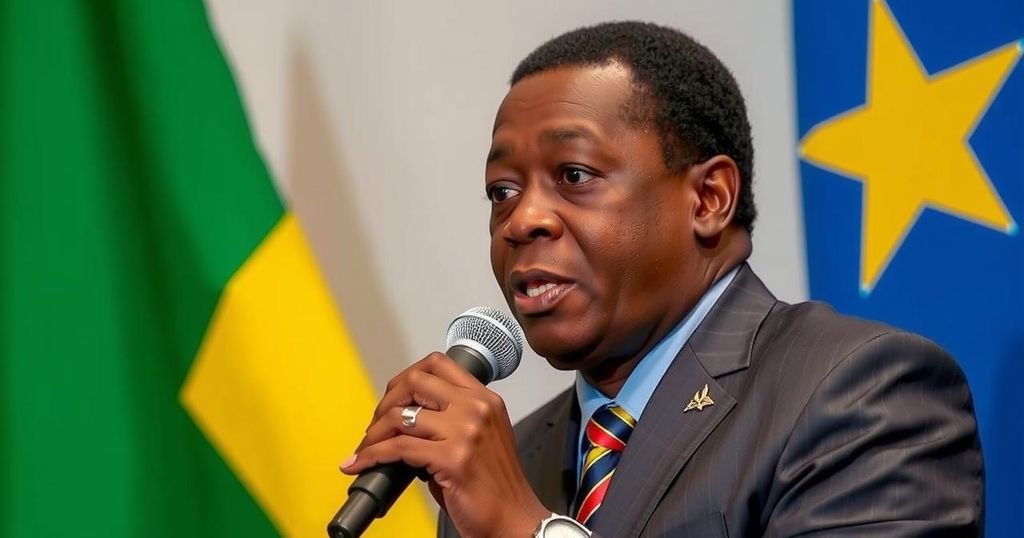Gabon’s Constitutional Referendum: A Pivotal Moment Post-Bongo Rule
Gabon held a pivotal referendum on a new constitution, described by the ruling junta as a major turning point following the coup that ended 55 years of Bongo family rule. Registered voters faced a campaign heavily laced with official propaganda, and voter turnout is deemed essential for the process’s legitimacy. Amidst reports of late poll openings, transitional President General Brice Oligui Nguema emphasized the historical significance of the votes cast.
On Saturday, Gabon conducted a crucial referendum aimed at adopting a new constitution, which the country’s ruling junta describes as a significant watershed moment following a military coup that dismantled the Bongo family’s longstanding dominance over the nation from 1967 until 2023. The referendum is set against a backdrop of heightened governmental pressure on the electorate, with appeals across television, radio, and social media imploring the 860,000 registered voters to participate actively. The ballot choices presented are a green paper signifying “yes” and a red paper representing “no.” Reports from local media indicate that the level of voter participation will play a decisive role in shaping the legitimacy of the referendum outcome. Polling stations across the capital, Libreville—including at the Lycee Leon M’Ba—experienced delayed openings, with election materials still being distributed even after the polls officially commenced at 7:00 AM. A total of 2,835 polling locations were slated to remain open until 6:00 PM. In anticipation of this pivotal electoral moment, transitional President General Brice Oligui Nguema expressed the gravity of the occasion through social media, stating, “We have a date with history,” illustrated by an image of himself in civilian attire holding his ballot card. This referendum is perceived as a potential turning point for Gabon’s political landscape, suggesting a new era following the extensive period of Bongo family rule.
The constitutional referendum in Gabon emerges in the wake of a military coup that ousted the Bongo dynasty after over five decades in power. This lengthy rule has been marked by allegations of corruption and a consolidation of power that diminished democratic processes within the country. Now, as Gabon navigates a transitional phase under military leadership, the proposed constitutional changes are being keenly evaluated by both the junta and the citizenry as a means to facilitate a democratic resurgence.
In conclusion, the recent constitutional referendum in Gabon serves as a critical moment in the country’s political evolution following the overthrow of the Bongo regime. With intense government encouragement for voter engagement amidst a highly controlled campaign environment, the outcome of this referendum could crucially redefine governance in Gabon and establish a framework for future democratic practices.
Original Source: www.scmp.com




Post Comment